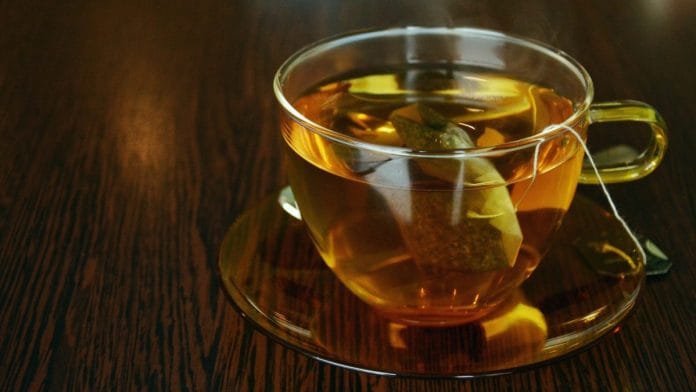Green tea continues to be a popular diet and fitness trend, whose proponents consider it a ‘superfood’ for its marketed health benefits such as weight loss, improved heart health, and antioxidant content. It appears a large section of people believe their weight loss journey is incomplete without at least three cups of green tea daily. Sometimes people also sweeten it with honey, making it unsuitable for weight loss. There is no doubt that it is an excellent source of catechins like epigallocatechin gallate or EGCG that act as antioxidants and are linked to numerous health benefits. Nevertheless, green tea alone cannot deliver the desired outcome and excessive consumption can also cause serious side effects.
The benefits of ECGC in green tea have been extensively studied, but the results so far have failed to produce enough sound evidence that it works to detoxify your body, treat diseases and promote longevity. Health and longevity are determined by several factors, including a diverse diet that green tea could be a part of.
Evidence of green tea’s benefits
Green tea contains antioxidants that are beneficial to overall health. There is, however, a need to critically evaluate the specific claims of it enabling weight loss and healthy ageing, preventing cancer and improving brain function.
Green tea is heavily promoted for its effects on burning fat and enhancing metabolism. The proposition is based on the observation that catechins in tea prevent obesity by increasing thermogenesis. Nevertheless, clinical trials have not tested this hypothesis. Almost all commercially available ‘fat burners’ contain green tea extract as an ingredient. These ‘fat burners’ have dangerous side effects as well.
Green tea is also associated with a reduced risk of diabetes. One meta-analysis studied 17 randomised controlled trials (RCTs) and concluded that green tea reduced fasting glucose and glycated haemoglobin — two biomarkers of type 2 diabetes. Similar results were observed in a retrospective cohort study from Japan involving 17,413 participants. However, the limitations include self-reported diabetes and lack of consideration for other dietary factors.
Researchers have found an association between ECGC and a lower risk of cancers such as breast cancer, prostate cancer, lung cancer. Most evidence, however, is epidemiological, observational, or based on a mouse model. There is no RCT with significant evidence to establish the effect of ECGC in preventing cancers. Likewise, there are multiple mechanistic data suggesting that green tea polyphenols like ECGC, theaflavins and catechins might prevent the neurodegenerative effects of diseases such as Alzheimer’s or Parkinson’s. However, clinical studies on humans are still not available to support this claim.
The evidence does not support green tea as a “superfood” to cure all ailments. A wide variety of other foods are available with excellent antioxidant profiles and nutrients that may provide similar health benefits.
Also Read: Stay away from detox ‘scams’. No single food or drink can be your medical miracle
Don’t drink too much
Too much of everything is harmful. In a 2007 study, researcher M Nathaniel Mead mentioned that animal-based research on green tea polyphenols was found to cause liver, kidney, and gastrointestinal damage. There are multiple case reports available on humans demonstrating that large consumption of green tea extract might cause liver injury. People with liver dysfunction must consult their physician before starting to consume any pills that contain the extract. Tannin, present in teas, including green tea, is linked to poor iron absorption and the onset of anaemia. In a case report, a 48-year-old man, who consumed six cups of green tea every weekday for seven years, was found to have developed anaemia. Too much caffeine can also lead to anxiety, sleep disturbance, and an upset stomach.
How much is too much? It’s a million-dollar question since the guidelines aren’t very clear about green tea consumption. To begin with, not everyone should drink green tea. A thorough medical history should be taken before consumption. It is also unclear if green tea is safe beyond a certain intake. The United States National Centre for Complementary and Integrative Health recommends eight cups of green tea per day. However, you should check the label to determine how much caffeine is in the product. To avoid adverse effects, I recommend drinking no more than two to three cups a day.
Also Read: Are you sleeping less than usual? The answer may be in your meal plan
Alternative antioxidant foods and drinks
In my opinion, no single food or drink can provide the most favourable health outcome. Overall, health benefits are determined by the composition of a diet. Despite this, if you are too devoted to having green tea every day, know that there are numerous other alternatives that are cheap, convenient, and full of nutrients. Some of these options are coffee, pomegranate, strawberries, blueberries, blackberries, amla, and citrus fruits. Despite the fact that coffee has more antioxidants than green tea, higher caffeine consumption should be avoided to prevent sleep disturbances. Coffee has also been linked to health benefits such as weight loss, reduced risk of colorectal and liver cancer, and preventive effects on neurodegenerative diseases. Beverages are naturally preferred over foods to ensure daily antioxidant consumption as drinking several cups of coffee is easier than eating a bowl of berries.
A plate full of fresh green vegetables and antioxidant-rich fruits is nutritionally superior to a cup of tea or coffee. Whole fruits and vegetables are high in natural polyphenols as well as fibre and micronutrients. With nuts and seeds added to this salad bowl, the nutritional profile can be enhanced further.
Dr Subhasree Ray is Doctoral Scholar (Ketogenic Diet), a certified diabetes educator, and a clinical and public health nutritionist. She tweets @DrSubhasree. Views are personal.
(Edited by Srinjoy Dey)






